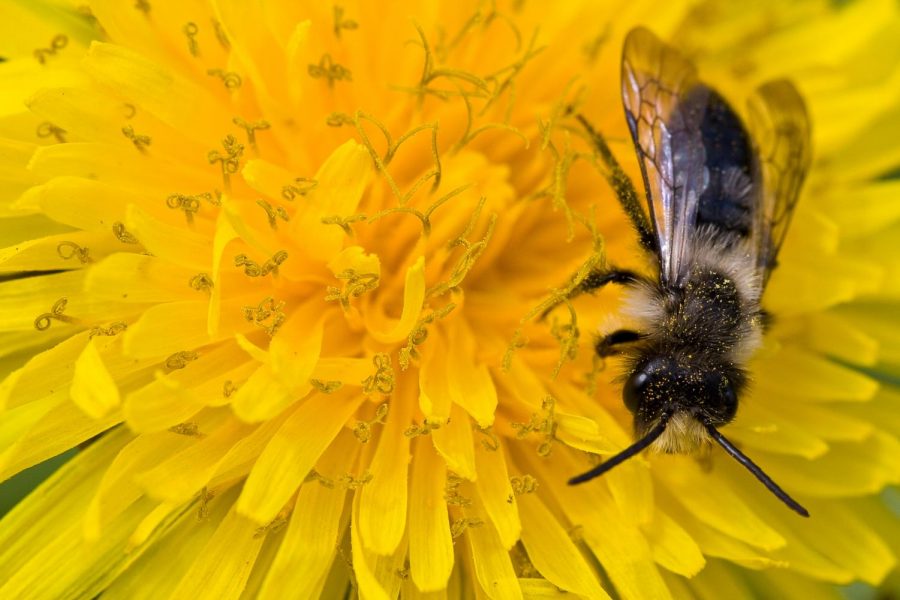Spring allergies land in Pullman
Warmer weather can cause a histamine intolerance to pollen, plants, nuts or clothing for some people
Lisa Morse, a pharmacist at Palouse Mall’s Rite Aid Pharmacy, said some people develop allergies because they have a histamine intolerance. She said using non-sedating, over-the-counter antihistamines like Claritin can help.
April 4, 2018
Despite this week’s snowfall, spring officially sprung on March 20. The season can be an exciting time for some people. The weather gets warmer, summer plans and graduation creep closer and flowers and plants of all colors are blooming.
However, for other people, the blooming season in Pullman can cause allergies.
Lisa Morse, a pharmacist at the Palouse Mall’s Rite Aid Pharmacy, said allergies can get worse for some people during the spring because of flowers, shrubs and grasses.
She said this is because some people are more receptive to histamines in the air. This susceptibility can be as unique as a person’s fingerprints.
According to the Healthline website, histamines are chemicals found in the human body that have several important functions. Their duties include acting as a neurotransmitter and sending messages to the brain. They also help digest food and are part of the immune system’s response when the body experiences an injury or allergic reaction.
Although histamines are necessary to the functions and health of the body, it’s possible for too many to build up and result in histamine intolerance. Symptoms can be similar to the ones associated with allergies, but can also include headaches, fatigue, hives, digestive problems, irregular menstrual cycles, nausea and vomiting.
According to the Diagnosis:Diet website, what you eat can also affect how your body responds to histamines. The website states that histamines are present in aged, fermented, cured, cultured and smoked food. The website noted this includes aged beef, ripe cheese and red wine.
Morse said the most common symptoms of allergies are a stuffy or runny nose, and red or runny eyes.
Troy Cole, a pharmacy intern at Shopko Pullman Pharmacy, said other symptoms include swelling of the face or lips and rashes.
Allergies can be treated without a prescription. Morse said nasal spray, which required a prescription until recently, may provide some relief.
She said there are several over-the-counter options for treating allergy symptoms, but she recommended a non-sedating antihistamine, like Allegra, Zyrtec or Claritin. Non-sedating can be a better option for many people, including busy college students, because it won’t cause drowsiness. She said Benadryl is effective, but can make users tired.
Morse said although most spring allergies come from the outdoors, it’s important to monitor the indoor environment as well, since dust or pets can cause allergic reactions.
Cole said many people are also allergic to plants and pollens, as well as nuts and clothing.






















